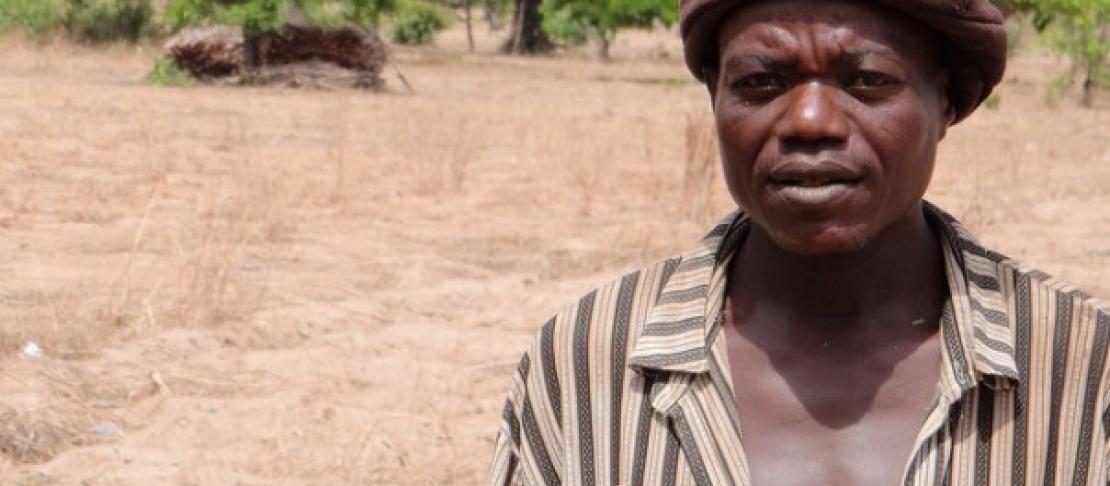People power equals soil power in Ghana's Upper West

In Ghana - a country with one of the most seriously nutrient-deficient soils in sub-Saharan Africa and even the world - soil degradation is perhaps the greatest limitation on improved agricultural productivity. The CGIAR Research Program on Climate Change, Agriculture and Food Security (CCAFS) is taking a look at what farmers in Ghana can, and are, doing to confront such challenges in a climate-smart manner, and what obstacles might be standing in their way.
Meet Clement Naazuin, a farmer of Dazuuri village in Ghana’s Upper West region: “I’ve been farming this area since my infancy,” Clement declares. “When I first started farming I didn’t have to put in so much effort to add nutrients to the land, and the yield was still very good. Now I have to put in extra soil nutrients, otherwise I get a low yield. To me, that is the main concern I have for agriculture on my land.”
Virtually every task Clement Naazuin considers to be important on his farm in Dazuuri village has to do with improving his soil. It’s not rocket science: we’re talking simple solutions like sticks, ridges, manure and pits – but these are simple solutions that make a big difference.
Click here to read the full article on reuters
Caity Peterson is a visiting researcher based at the International Center for Tropical Agriculture (CIAT) in Colombia, working in the CGIAR Research Program on Climate Change, Agriculture and Food Security (CCAFS). From July 15-20, CGIAR and its partners are participating in the Africa Agriculture Science Week (AASW), in Accra, Ghana. For updates from the conference follow @Cgiarclimate and #AASW6 on twitter



